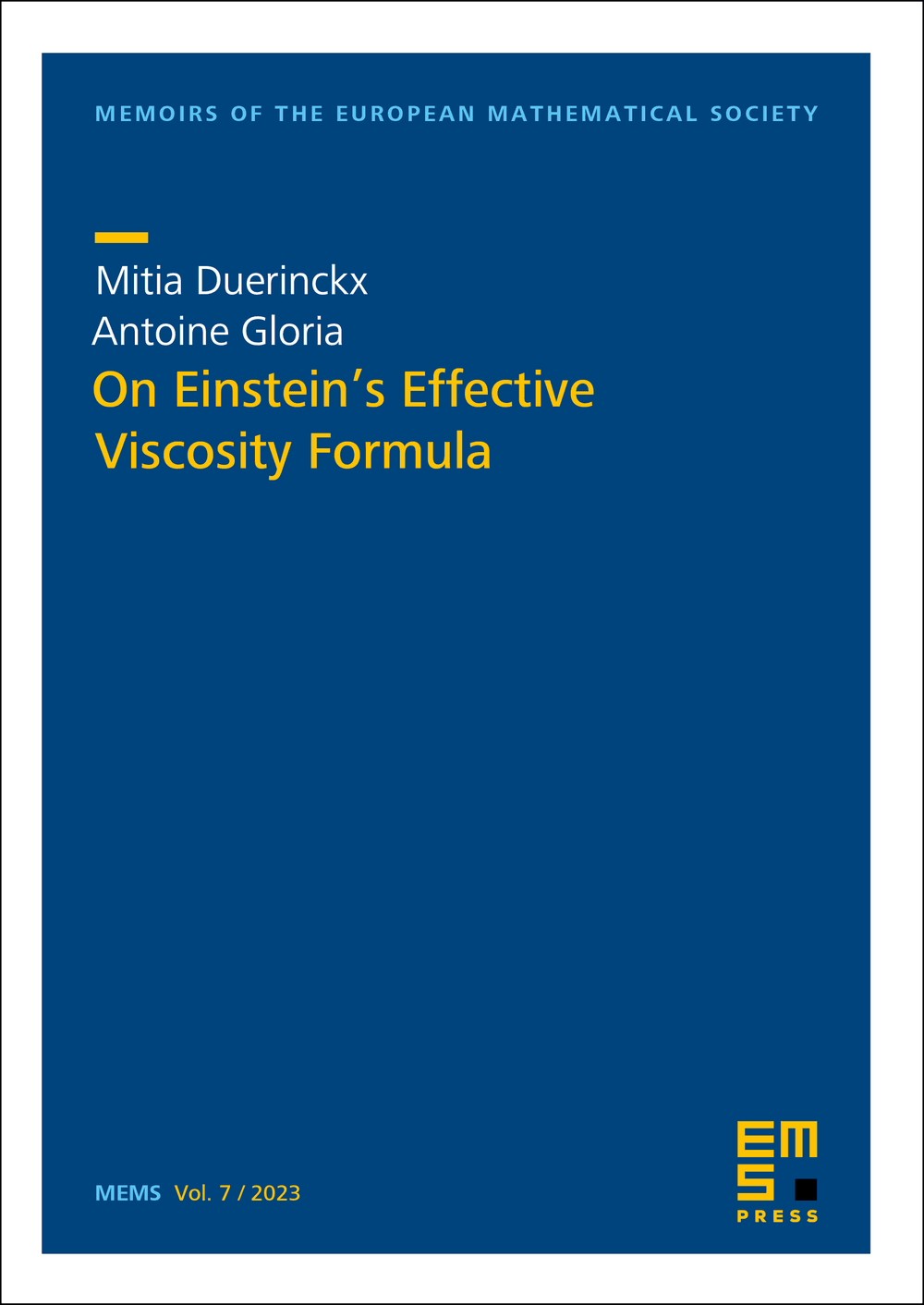On Einstein's Effective Viscosity Formula
Mitia Duerinckx
Université Libre de Bruxelles, Belgium; Université Paris-Saclay, FranceAntoine Gloria
Sorbonne Université, France; Institut Universitaire de France; Université Libre de Bruxelles, Belgium

This book is published open access.
In his PhD thesis, Einstein derived an explicit first-order expansion for the effective viscosity of a Stokes fluid with a suspension of small rigid particles at low density. His formal derivation relied on two implicit assumptions: (i) there is a scale separation between the size of the particles and the observation scale; and (ii) at first order, dilute particles do not interact with one another. In mathematical terms, the first assumption amounts to the validity of a homogenization result defining the effective viscosity tensor, which is now well understood. Next, the second assumption allowed Einstein to approximate this effective viscosity at low density by considering particles as being isolated. The rigorous justification is, in fact, quite subtle as the effective viscosity is a nonlinear nonlocal function of the ensemble of particles and as hydrodynamic interactions have borderline integrability.
In the present memoir, we establish Einstein's effective viscosity formula in the most general setting. In addition, we pursue the low-density expansion to arbitrary order in form of a cluster expansion, where the summation of hydrodynamic interactions crucially requires suitable renormalizations. In particular, we justify a celebrated result by Batchelor and Green on the second-order correction and we explicitly describe all higher-order renormalizations for the first time. In some specific settings, we further address the summability of the whole cluster expansion. Our approach relies on a combination of combinatorial arguments, variational analysis, elliptic regularity, probability theory, and diagrammatic integration methods.